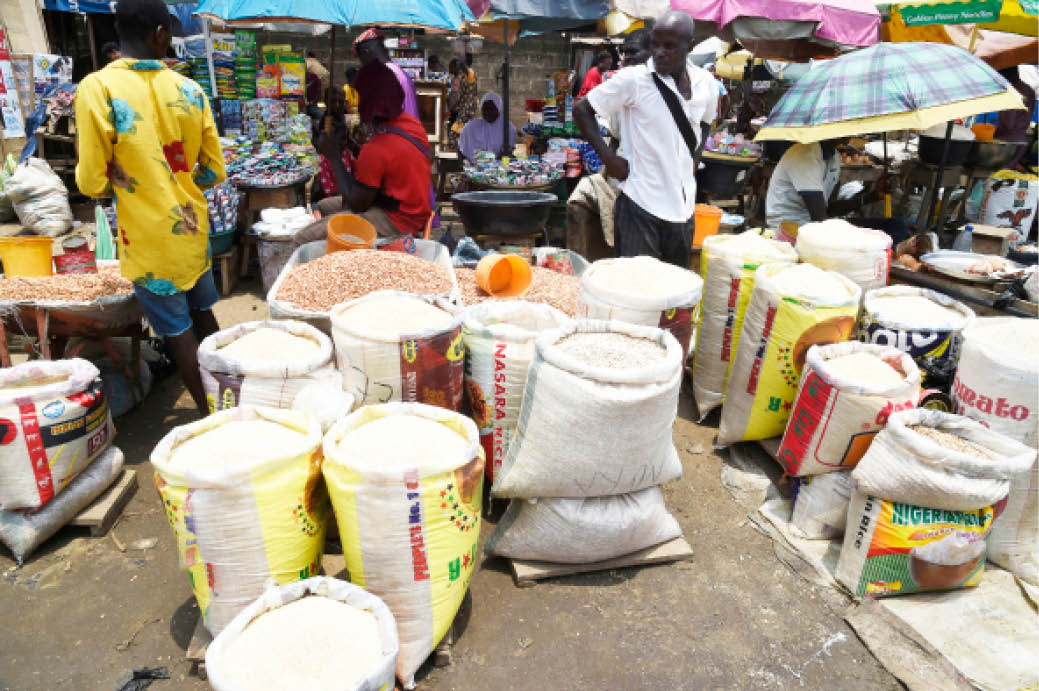We’re yet to see naira gain – Nigerians
Nigerians have lamented that despite the massive appreciation of naira against foreign currencies in recent times, prices of food items and goods have not crashed. They spoke in response to a social media survey conducted by Daily Trust Online, asking people to indicate what has reduced as a result of the recent appreciation of naira. […]

We’re yet to see naira gain – Nigerians
Nigerians have lamented that despite the massive appreciation of naira against foreign currencies in recent times, prices of food items and goods have not crashed.
They spoke in response to a social media survey conducted by Daily Trust Online, asking people to indicate what has reduced as a result of the recent appreciation of naira.
Daily Trust reports that naira has gained massively in recent times following aggressive defence of the local currency against the dollar by the Central Bank of Nigeria.
The dollar, which almost hit the N2,000 mark a few weeks ago, has crashed to about N1,150 at the parallel market.
At the time the naira was experiencing a free fall, prices of food items and imported goods spiraled out of control, worsening the cost of living crisis in Nigeria.
But “have the prices of essential goods reduced in your area as a result of the naira gain?” as asked by Daily Trust on its verified social media pages on Facebook, Instagram and X (formerly Twitter), many Nigerians said they are yet to see the result.
They, however, hoped that things would begin to come down if the government continues on the present trajectory.
Responding to the survey, Callistus Cally Nwabuikwu said, “We practise extreme capitalism without conscience. When prices go up, they don’t come down.”
Umar Galadima stated that not a single commodity has reduced, saying, however, the issue borders on the fuel subsidy removal.
“Until when the price of petrol is reduced, nothing significant can be achieved,” he said.
Mohammed Suleiman said, “Not yet, but let the government keep doing better. We appreciate them so far, May Nigeria succeed.”
Ahmed Habib said, “The prices of essential products have not decreased in my area despite the increasing value of the naira.”
Another respondent, James Kalu, stated that rather than decreasing, prices are going up, adding, “The soap I bought for N600 when the dollar was N1900, I bought it N800 days back.”
Derinsola Omoba stated that many marketers appear to be in love with inflation, while Nsikak Isaac called for the set-up of a commodity pricing board.
Anas Salis stated that many marketers lack the fear of God because “when the dollar rises immediately, they will rise their old goods (sic).”
Abu Mohammed Sadiq said, “Without a proper price regulation agency, Nigerians are not good in being honest” while many other respondents said a task force should be constituted to force people to bring down their prices.
It would be recalled that financial derivatives owned by Bismark Rewane recently said the naira gain would not be felt immediately in reduction in food prices.
“Essentially, the naira’s stability will continue amid higher interest rates. However, it will take time for exchange rate gains to translate to reduced commodity prices in the open markets, indicating a prolonged period of the cost of living crisis in the short term,” the firm said.
Speaking with Daily Trust, an economist, Prof. Ndubisi Nwokoma, said, “Prices are usually streaky downward. When the price goes up, something major would have to happen for it to come down.
“We will expect inflation to come down, but the current stocks of many of the sellers were purchased with the old price. So usually people talk about the cost to them. It is when people are beginning to purchase with the new price regime that will reflect in the new price.
“So definitely there may be a lag for prices to respond to the exchange rate position.”
Ndubisi, who is the Director of the Center for Economic Policy Research at the University of Lagos, expressed optimism that the appreciation of the naira would not be short timed.
